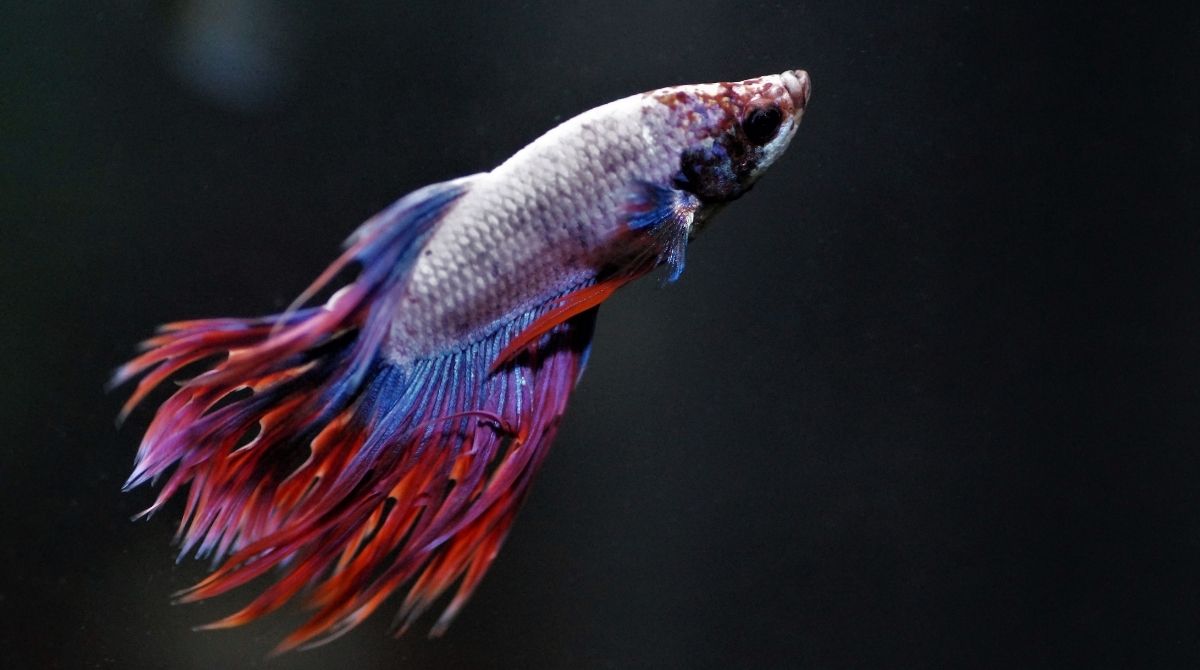Betta fish, known for their vibrant colors and striking fins, are popular aquatic pets that require proper care and attention. One crucial aspect of betta fish care is providing them with a balanced diet and feeding them appropriately. Establishing the correct feeding frequency plays a vital role in maintaining the health, happiness, and longevity of these beautiful creatures. In this article, we will explore the factors that influence the frequency of feeding betta fish and provide guidelines to help you create a suitable feeding schedule.
Understanding the Betta Fish’s Natural Behavior: To determine how often to feed your betta fish, it is essential to understand their natural behavior in the wild. In their natural habitat, bettas are carnivorous and have a small stomach capacity. They are accustomed to feeding on insects, larvae, and small organisms found in their surroundings. Bettas are opportunistic feeders, meaning they will eat whenever they come across food. However, they do not have a constant and reliable food source.
Factors Influencing Feeding Frequency: Several factors influence the feeding frequency for betta fish. These factors include the age, size, and overall health of the fish, water temperature, and the type of food being offered. Understanding these factors will help you establish a feeding routine that best suits your betta fish’s needs.
- Age and Size: Younger bettas have higher metabolic rates and, therefore, require more frequent feedings. On the other hand, adult bettas have slower metabolisms and may not need to be fed as often. As a general guideline, feed young bettas three small meals a day and adult bettas once or twice a day.
- Overall Health: The health condition of your betta fish is crucial in determining feeding frequency. If your betta fish is recovering from an illness or stress, it may be necessary to increase the frequency of feedings to aid in its recovery. However, if your betta fish appears overweight or bloated, it may be necessary to reduce the feeding frequency and monitor its diet closely.
- Water Temperature: Betta fish are ectothermic, meaning their body temperature is influenced by their environment. Warmer water temperatures increase the metabolic rate of bettas, leading to a higher energy expenditure. Consequently, bettas in warmer water may require more frequent feedings compared to those in cooler water. Ensure you maintain an optimal water temperature range of 76-82°F (24-28°C) for betta fish.
- Type of Food: The type of food you offer your betta fish can also affect the feeding frequency. Bettas thrive on a varied diet consisting of high-quality pellets or flakes formulated specifically for them. These commercial foods provide essential nutrients and are usually fed once or twice a day. Additionally, you can supplement their diet with occasional treats such as frozen or live foods like brine shrimp or daphnia. Treats should be offered sparingly, perhaps a couple of times a week, as they can be high in fat.
Establishing a Feeding Schedule: Based on the factors discussed above, here are some general feeding guidelines for betta fish:
- Young Betta Fish (up to 6 months old): Feed three small meals a day, ensuring the food is consumed within 2-3 minutes. Use high-quality betta pellets or flakes formulated for young fish.
- Adult Betta Fish (6 months and older): Feed once or twice a day, providing only what the fish can consume within 2-3 minutes. Adjust the feeding frequency based on your betta’s appetite, health, and water temperature.
- Fasting Days: It is beneficial to incorporate fasting days into your betta fish’s feeding schedule. Fasting for one day a week can help prevent digestive issues and allows the fish’s digestive system to rest.
- Observe and Adjust: Regularly observe your betta fish’s behavior and overall health. If your fish appears hungry or exhibits signs of malnutrition, you may need to increase the feeding frequency slightly. Conversely, if your betta shows signs of overeating or obesity, adjust the feeding frequency accordingly.
Feeding your betta fish appropriately is crucial for their overall health and well-being. By considering factors such as age, size, health, water temperature, and type of food, you can establish a feeding schedule that meets their specific needs. Remember to monitor your betta fish’s behavior and adjust the feeding frequency as necessary. Providing a balanced diet and maintaining an optimal environment will ensure your betta fish lives a healthy and fulfilling life.
Resources:
https://vetmed.illinois.edu/pet-health-columns/betta-fish/


